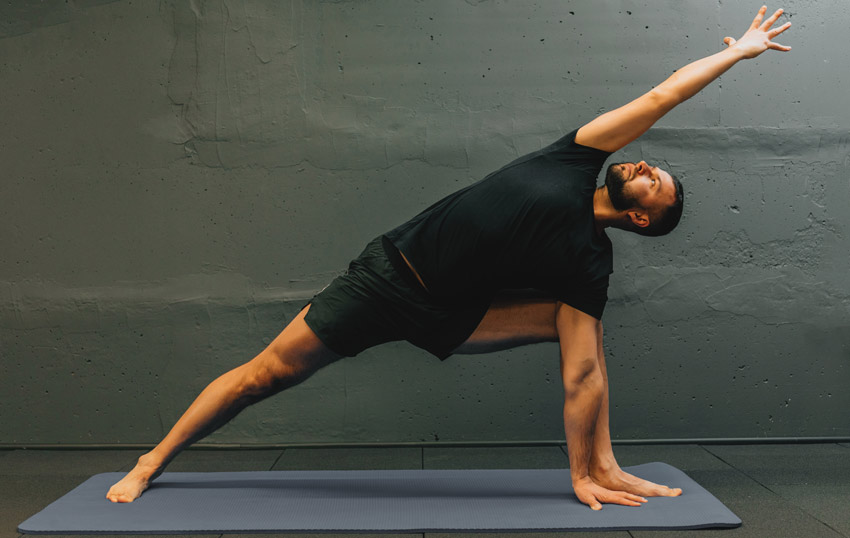More Than the Marketing
If your main exposure to yoga has been through advertisements for yoga clothing or the latest online class, you might view it as just another health craze that pops up every few months–and one that is primarily for people who are already extremely flexible, strong, and graceful.
However, if you ignore the marketing and find a local yoga class to try, you will likely discover that it is for all bodies. Yoga can bring to your body and mind a strength and calm that supports recovery from a substance use disorder.
So What Is Yoga Exactly?
Yoga, in its pure definition, means “union.” The practice of yoga involves using breath, mental focus, and physical postures and movement to bring the person into a state of deep awareness and peace. While it’s true that many Western variations of yoga focus heavily on the physical, yoga isn’t about achieving a certain look or an ability to do certain postures. Yoga involves three central components:
- Movement
Yep, all those downward dogs, crocodiles, and cat cow poses make up the physical component of the yoga practice. Arguably, there are around 80 different yoga poses, but the vast number of modifications, alternate movements, and combinations of poses keeps the practice fresh and challenging. These movements aim to build strength and to release muscle tension so the body becomes more open and flexible over time. - Breathing
The breathing component of yoga is considered just as crucial as the physical aspect. Breath and movement are meant to be done in tandem. The idea is that when breathing properly and with intention during a practice, the person releases physical, mental, and emotional tension. - Meditation
While we often think of meditation as something done when sitting still, meditation can happen in movement as well. Yoga offers the perfect opportunity to practice focusing on the breath and present moment while moving the body through the various postures. This focus brings awareness to what the body is feeling, what the mind is thinking, and what emotions are present. Meditation helps the person observe what is happening without judging it. In the practice of yoga, for example, noticing that one leg is stiffer than the other might lead to anxiety or frustration; yoga teaches you to observe that stiffness and that frustration and to use the breath to create relaxation within and around those feelings.
How It Fits into Recovery
So much of recovery revolves around forgiveness, compassion, discipline, and an intentional rewiring of the brain and the habits that it formed under the influence of substances. This is a psychobiological approach to recovery and sobriety, and often finds success with the aid of cognitive behavioral therapy (CBT). In CBT, the therapist works with the client to uncover the sources and triggers of stress, become aware of how the body and mind respond to the stress, and then regulate and relax this response.
In a way, the benefits of yoga are like the benefits of CBT: a greater self-awareness and an ability to calm oneself and approach stressful situations with more clarity.
According to Psychology Today, yoga will almost always offer its practitioners the following:
- An opportunity to face internal fears in a safe space
- A way minimize intrusive thoughts
- Lower blood pressure and heart rate
- A greater ability to reflect on actions, desires, and needs
Help for Addiction at St. Gregory Recovery Center
If you are suffering from a substance use disorder, St. Gregory is here to help. Our program offers dedicated time for therapy and group work, and we provide education and support in building an active, healthy lifestyle that will help our clients sustain long-term recovery after leaving treatment.











